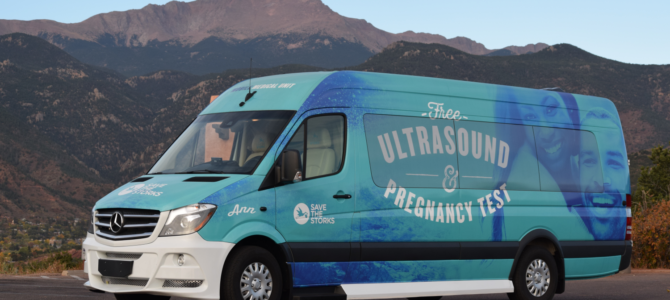Two local papers have published reports on a new ultrasound van offering services and council to pregnant women in southern Colorado with little to no mention of the anti-abortion stance of the organizations behind the program.
The two pregnancy centers behind so-called “Ann the Van”, Pueblo’s A Caring Pregnancy Center and the Cañon City Pregnancy Center, are openly anti-abortion, according to their websites.
But reports in the Cañon City Daily Record and the Pueblo Chieftain, which refer to the van as a “mobile medical unit”, don’t mention the fact that Crisis Pregnancy Centers like the ones behind the van have been shown to steer women away from seeking abortions, often by offering misinformation.
And ultrasounds have been a staple of anti-choice tactics in Colorado, another fact which both articles fail to mention.
For a few years in a row, state legislative proposals seeking to curtail access to abortion have featured provisions that require ultrasounds, in addition to requirements that pregnant women hear an oral description of the fetus from their doctor and undergo a 24-hour waiting period before terminating a pregnancy.
In 2015, an ultrasound van was parked outside the state Capitol in the hours leading up to a hearing on one of these bills. And the Colorado Springs-based “Save the Storks” van often turns up outside of abortion clinics.
The director of A Caring Pregnancy Center, Tamra Axworthy, told the Cañon City Daily Record that “our heart is that they chose life”, but claimed that they don’t pressure pregnant women to continue with their pregnancies, and only offer accurate medical information.
And yet the pregnancy center’s website is rife with misinformation, claiming that abortions pose significant health risks despite the fact that having an abortion is actually safer than giving birth. For example, the webpage lists several “emotional complications” as side effects of abortion, including suicidal thoughts and depression, but research shows that there’s no evidence abortion causes mental health problems. And, in fact, a 2016 study showed that psychological symptoms increased only in women who sought abortions but were unable to have the procedure.
And, in spite of Axworthy’s claim that her pregnancy center on wheels doesn’t attempt to sway women’s decisions regarding their unplanned pregnancies, her website contains clearly persuasive language. For example, it describes abortion as a procedure that “ends the life of a pre-born baby whose heart is already beating”, signaling the idea that life begins at conception, called “personhood”.
Axworthy didn’t respond to a request for comment.
The Cañon City Pregnancy Center is even less subtle in its anti-abortion agenda, stating on its website that its mission is to “[create] awareness within the local community regarding pregnancy, family needs and of the fact that abortion compounds human need rather than resolving it.”
So why wasn’t any information about the anti-abortion tactics of crisis pregnancy centers included in these news reports?
Requests for answers to that question, from both the Pueblo Chieftain and the Cañon City Daily Recorder, were not returned.




